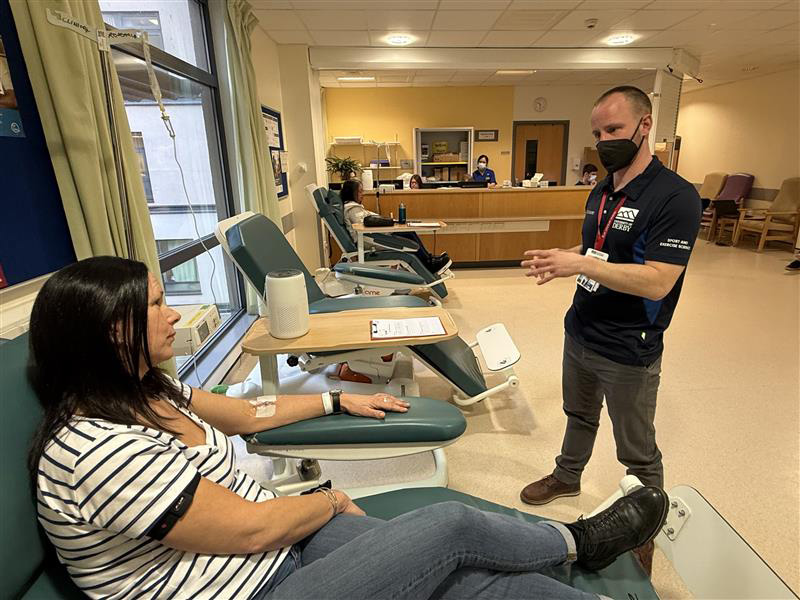Coverage Vs Content: We’re Teaching, but is Everyone Learning?

With more students than ever requiring support in FE maths and English, the streamlining workload and focusing on priority content has never been more important. Here, Jonny Kay covers the significance of efficiency in assessment and the need to adapt to meet diverse student needs
From core responsibilities such as planning, teaching and feedback to pastoral duties, open events, reporting and administration, time remains a key commodity for teachers across all sectors of education. As a result, in team meetings and in response to emails up and down the country, the introduction of any new workload is often be met with, ‘when will I get time to do that?’
Specifically in English and maths in Further Education, with students’ attendance a primary challenge, at times it can feel like an impossible task to fit everything into the precious time we enjoy with students.
When attempting to introduce any innovation or strategy in FE English and maths, it’s not uncommon to hear ‘…but, we barely get through the spec as it is.’ After much reflection and discussion around this, a question that surely must follow this statement is, ‘How can we be more effective and efficient?’
As students enter our classrooms at the start of the year, with the feeling they have failed, engagement can be difficult, as it forces them to re-engage with the feeling of failure. Often, students will avoid engagement entirely to protect their own wellbeing and self-esteem (‘if I don’t try, I can’t fail’). Consequently, we see in so many lessons teachers doing so much heavy lifting.
At times, teachers can do too much
To support students in FE English and maths, it’s important to remember that it is possible to streamline workload and this should be a constant focus. To begin this process, we must start at the beginning (of the learning cycle, and the year).
We know that students are more motivated, and show greater progress, when they achieve (whether at granular or grandstand level). With accurate, regular assessment, focused on plugging skills gaps, we can begin to empower students and also lessen workload. Through identification of specific student gaps, and individualised resources, we start to empower our students to do more of the heavy lifting and also begin to gain more time through only focusing on what students need to succeed: less sage on a stage, more guide from the side. There is currently a major, DfE funded project looking at elements of this as we speak – see more about The BASE Project at the end of this blog.
The vast majority of students entering Post-16 education have encountered and experienced at least a decade of maths and English education (through Primary, Middle and Secondary school, alt provision or home-schooling). Primary and Secondary colleagues have painstakingly covered everything within the specification over the years through lessons, homework, and interventions, with parents and guardians supporting at home and independent resources available through the likes of BBC Bite, YouTube and beyond.
From planning to results day, we hear this repeated/uttered throughout the school year. ‘How did they not get marks for that topic? We covered it before Christmas!’
It reminds me of the old joke about a man boasting to a friend about his dog’s amazing talent:
‘I’ve taught my dog French!’
‘That’s amazing! Can you get it to speak some French for me?
‘I said I taught him French; I didn’t say he’d learned it.’
And isn’t this sometimes the issue we see in FE English and maths? With challenges around attendance, engagement and motivating students who feel like they have failed, are we guilty of not focusing more on priority content? Are we trying to build a new boat instead of just effectively repairing gaps in the existing one?
Individualisation, differentiation and adaptive teaching
I recently wrote a blog on individualisation, differentiation and adaptive teaching (you can find it here) addressing the differences in those terms and what they have come to mean in some quarters of education. This sits at the heart of the coverage vs. content debate: efficient and effective identification, targeting and support of individual needs is absolutely the priority for so many of our learners.
To be effective, we must be efficient. There is a persistence with full paper mocks to identify student strengths, areas for development and next steps. Yes, of course, there’s a place for mocks, but large scale, high stakes assessment for students who continue to feel as though they have failed can cause as much damage to students as it benefits teacher knowledge of student needs. Similarly, with initial assessment, how often do we complete digital initial assessments and then follow this up with lengthy subject specific initial assessments which often takes a full week of lessons? After missing their intended grade, this is the last thing students want to experience and, again, we don’t need to assess every element of every topic for every student in the opening weeks of the year. They key is in the title: initial assessment. How much more impact, and how much time would be saved, if we only assessed the content to be covered in the opening 6-8 weeks?
More time to actually teach students
By streamlining this assessment activity, we have more time to actually teach students, identify exactly what their needs are and start to plug gaps.
Now, of course, English and maths students have diverse and wide-ranging needs, and all skills within the specification are important to support student development, growth and future opportunities. Having said this, to our students, some are more key than others. Put simply, to our students, the most important elements of the curriculum are those which support them to successfully progress, develop and achieve.
Time is lost to the inherent challenges of Further Education
I am not telling you anything new here, teachers in Further Education often struggle to teach the entire specification in a single academic year because time is lost to the inherent challenges of Further Education (e.g. student attendance, timetabling challenges, late enrolments, reviews of marking, November resits etc.). As a result, in the recent past, there have been attempts to streamline the curriculum for FE through a number of national strategies: these efforts have their place, of course; however, this can also seem too close to ‘one size fits all’ and mass removal of elements not deemed likely to appear in exam papers or worth fewer marks. It’s important to remember that limiting topics or themes across a scheme of work is unlikely to support individual student needs. What if we trim the one topic a student needs to unlock prior knowledge, future learning and, ultimately, achievement and success?
Obviously, it’s enormously simplistic to simply say ‘teach them what they need to know’, but… well, that is more of what we need to do, and less recap and reteaching of the entire curriculum. If we focus on this, we’re focusing only on the performance of teaching instead of process of learning.
It’s important to remember that, in effectively identifying student’s less secure knowledge, there are challenges to meeting each individual student’s needs. Having identified that 3 students need support with X, 6 students require support with Y and 7 students struggle with Z, we need to support all of these students within a session. And this is exactly why we need to be more scalpel and less sledgehammer with planning the FE English and maths curriculum. Strategies such as low stakes quizzing (in which we can regularly assess and support students with challenging topics every day, supporting long term memory and recall), use of flipped learning, collaboration with vocational colleagues and innovative classroom techniques to support individualisation are all key.
FE is a sector like no other
Of course, the real joy of teaching comes in the freedom it brings: every college, classroom and teacher is different, and uses their own experiences, context, subject knowledge and personality to bring the curriculum to life. FE is a sector like no other: that’s why we have to respond to student needs so uniquely.
To support all teachers and leaders in English and maths, we’re thrilled to announce The Development Wheel‘s first English and maths conference: taking place on Friday 15th March at The Queen’s Hotel in Leeds, with a keynote from Baroness Floella Benjamin DBE, sessions are keenly focused around subject specific innovation in both English and maths. With additional sessions around AI, assessment, leadership and more, for more information, including how to secure your ticket, follow this link.
For more information on the BASE Project, a DfE funded project, designed to support FE English and maths teachers, leaders and students throughout the North East, Yorkshire and Humberside, visit our website, here. With free CPD, teaching resources, tracking and metacognition tools available, all fully funded throughout 2024 and 2025, contact us now.
By Jonathan Kay, National Education Lead at The Development Wheel, an organisation committed to supporting all learners to reach their potential.











Responses